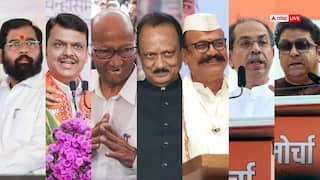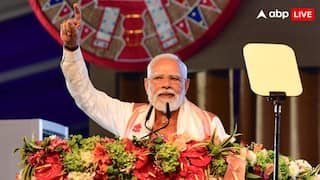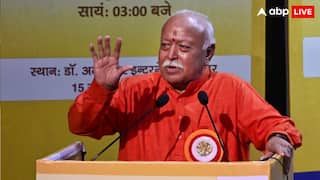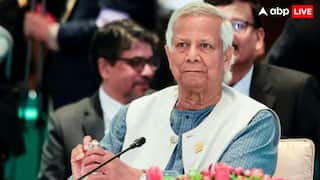Anyone But England: Some Thoughts Of An Indian On The Euro 2020 Final

Sunday afternoons are proverbially meant for relaxation and time with that simultaneously oddest and most ‘natural’ of social institutions called ‘the family’. And what better way apparently to relax than to watch the Euro 2020 Final between England and Italy, both vying yesterday, July 11, for the trophy after a long drought: Italy last won it in 1968 and England last won any major international football tournament in 1966 when it lifted the World Cup with a 4-2 defeat over Germany. England has never owned the European Cup. But England is nothing if it is not a football nation: however, though it is scarcely alone in its passion, its fans are singular in having earned a notoriety all their own. Indeed, the American journalist Bill Buford wrote in 1990 an engaging book on football hooliganism, Among the Thugs, focusing largely on English football fans from Manchester United with whom he traveled to many matches. He found these football hooligans, whose devotion to their team rivals in intensity the religious feelings that the devout have for their faith, also shared some traits with those English who are affiliated to the white nationalist party, the National Front. More pointedly, as he was caught in riots among these football fans in 1990 in Sardinia where the World Cup was being played, he unexpectedly found the violence to be ‘pleasurable’. Violence, he wrote of these football fanatics, ‘is their antisocial kick, their mind-altering experience, an adrenaline-induced euphoria’ that shares ‘many of the same addictive qualities that characterize synthetically-produced drugs.’
Sitting at my home in Los Angles watching the Euro Cup at noon on Sunday, it was anything but an afternoon of relaxation. Though at times an avid follower of ‘the beautiful game’, I am far from being a football fanatic and the worldview of the ‘fan’, regardless of the sport, remains somewhat opaque to me. Just how one become a ‘fan’ of one team or another is something of a mystery—and altogether unfathomable when one becomes a fan to the point of shouting oneself hoarse, throwing beer bottles at others, getting into fistfights, and engaging in vandalism. That is of course precisely what happened yesterday at Wembley, where a few thousand English fans broke into the stadium without tickets, causing a ruckus and beating a few people senseless—just for the heck of it, or, as Buford has described it, because they got a rush from the thought of the impending excitement as the game was about to start. It must have been that same sense of excitement which transformed what should have been an afternoon of relaxation for me to nearly three hours of nerve-wracking tension which was alleviated only after the nail-biting finish that saw Italy defeat England on penalty kicks after the two countries were drawn at 1-1.
There is a question about whether England should have been in the final at all and I have not been alone in questioning the award of a penalty kick to it during its semi-final match with Denmark for what appears to have been anything but a foul inviting a red card. The Indian in me, a life-long student of colonialism and particularly British colonial rule in India, is accustomed to thinking of England as a country that attempted to rest its reputation on its alleged adherence to the idea of ‘fairness’ and the sense of ‘fair play’ and that yet never honored any treaty that it signed with Indian rulers as it started gaining an upper hand in India from the second half of the 18th century. The brethren of these Britons in the United States were, for the record, worse for they not only broke every treaty with the other Indians—the Native Americans—but contributed handsomely to their extermination. Still, if England undeservedly got awarded a penalty, it derived this benefit from the error of judgment on the part of the referee. There seemed not much point in fretting about this. Nevertheless, as I settled into my arm-chair for the match, I did so with the hope that Italy would triumph—though, to reiterate, I am a fan of neither England nor Italy. In this matter, as indeed in most others where it is a question of choosing between England and some other country, I generally go with the sentiment that forms the title of the late Mark Marqusee’s scintillating book on cricket, racism, and nationalism, Anyone but England (2005). There are marked exceptions to this: between England and Australia, for instance, I almost invariably opt for England, since Australia’s stomach-churning racism and philistinism is even more distasteful.
Two minutes into the match, the English defender Luke Shaw scored—his first goal in an international match and the fastest goal in Euro Final history. It was a good goal, well-earned, and England had gotten off to a roaring start as it has throughout the tournament. My heart started pumping furiously but I am not a football hooligan, not even a mere fan. Imagine the hordes at Wembley and in England’s countless number of pubs where the beer was flowing faster than my thoughts. Other thoughts raced through my mind: if England were to win, many of the defenders of Brexit would be sure to claim that England’s departure from the European Union has also revived its football. Yet many more would gloat, as the English have for centuries, that England is England and Europe can stew in its own juice. In truth, something is rotten in Europe—and not only in the state of Denmark. But enough of Hamlet. The question is not whether an English triumph has any intrinsic relationship to the arguments for or against Brexit: there are plenty of people, fortuitously or otherwise, who are not yet deluded into thinking that logos orders the world. But an English triumph would likely strengthen the hands of its own rednecks and troglodytes.
Meanwhile, for the first thirty minutes, England continued to dominate; and then, slowly but surely, England played with the idea not of enhancing its lead, but merely defending it; it played with the idea that it could sit on the game and ride out the clock. I am tempted to say that someone should have told England’s coach, Gareth Southgate, that his country did not gain an empire and fly the Union Jack around a quarter of the globe by sitting on a few possessions. But football, like empire-building, is a volatile game. The last two-thirds of regulation time belonged largely, and increasingly, to Italy. I am however not here to parse the game and crunch the numbers. Italy’s possession of the ball tells a good part of the story but it does not tell us much about the cultural politics of football and of this very game. In the 67th minute, the veteran defender Bonucci leveled the game, and the score stood at 1-1 through regulation time and the thirty minutes of overtime. And so the game went to a penalty shootout.
If normal play and overtime are enough to cause the heart to pump faster and induce unbearable excitement, the penalty shootout in international football is intensely anxiety-producing and enough to send some into cardiac arrest. The semantics of the “penalty shootout” require much further elaboration than I am able to entertain at this time, but, to offer only one hint, cultural historians may want to reflect on the resemblance to other European rituals such as the duel. It is understandable why a flagrant foul resulting in the issuance of a red card in the penalty box should lead to something called a penalty kick, but it is far from clear why the five free kicks allotted to each side at the end of overtime—followed by “sudden death” if still no decisive result is forthcoming—are cumulatively designated as a “penalty shootout”. There is no penalty as such that has been adjudged to a player. If anything, the penalty shootout appears to be a peculiarly punitive and even bizarre way of bringing the game to closure, except that it is the players as a whole who appear to have to face the penalty—a penalty imposed on them, so to speak, for having failed to achieve a decisive result. For the viewer, the “penalty shootout” is itself a punishment—for nearly everyone recognizes that, at this stage, it is really the luck of the draw that determines the outcome.
As penalty shootouts go, this must rank among the most heart-wrenching witnessed in international football in recent years. Let us first merely enumerate the result: Italy 3, England 2. Coach Southgate elected to send in two substitutes—Marcus Rashford and Jadon Sancho—in the final minute of the game, apparently with the precise intention of having each of them take the impending penalty kick. Nineteen-year old Bukayo Saka was sent in as a substitute around 70 minutes into the game. Thus two of the five players appointed to take penalties were, in football parlance, fresh legs on the field and the third was a teenager who had never taken a penalty in an international match, much less one which was being heralded as England’s likely moment of glory. England was up 2-1 against Italy after two penalties, but the score was level after Sancho’s penalty was saved by the Italian goalkeeper. Rashford then sent the ball into the post. The whole weight of England appeared to rest on the tender shoulders of Saka even as Italy’s penalty expert, Jorginho, failed at this critical moment. It is in the nature of things, of course, that fans do not care about the failings of the other team; they are unforgiving only about the shortcomings of their own team. There will be ceaseless talk about the inexperience of Saka, the heroics of the Italian goalkeeper, or an error of judgment on the part of the coach: what is only certain is that Saka could not deliver. No one is even talking about the fact that had Saka’s delivery gone into the net, England would only have leveled the score and sent the game into “sudden death”.
What should have been unsaid could not, considering the present state of humanity, remain unsaid. Rashford, Sancho, and Saka are all colored players, and England being England some people were determined that they should be put on notice and pulverized with hatred. Within minutes of England’s defeat, all three were being subjected to vitriolic abuse on social media. Saka is of Nigerian ancestry but was born and raised in Britain, but of course that did not stop some fans from urging him to be deported to Nigeria. Messages including the monkey emoji have flooded social media accounts in England. To be sure, the Football Association of England has issued a strong statement saying that it “strongly condemns all forms of discrimination and is appalled by the online racism that has been aimed at some of our England players on social media. We could not be clearer that anyone behind such disgusting behaviour is not welcome in following the team.” Monkey chants on football fields have a long history in England and indeed other parts of Europe. However, rather than take recourse to the usual observations by well-intentioned liberals on such occasions—about the need for diversity training, about how much work still needs to be done to root out prejudices and eliminate racism, and other similar pious if necessary homilies—I would like to suggest why, if I might have been hoping for England’s defeat, I was at the same time not hoping for Italy’s victory. Football is sometimes described (following the Brazilians) as ‘the beautiful game’: apart from the intrinsic qualities of the world’s preeminent team sport, no other sport has such a cosmopolitan cast. It is to England’s credit that players such as Rashford, Sancho, and Saka have found their way into the national team. The Azzurri, Italy’s national football team, is by contrast distinctly provincial. In 2021, one can have only so much of Mancini, Bonucci, and Chiellini, or Lorenzo, Spinazzola, and Bernardeschi. Italy may have birthed the renaissance but its football team is a relic from an earlier time.
The future of football, however, is neither with England nor Italy; nor with Germany, Spain, Denmark, or France; or indeed with any other national team. The future of any game, if we are to be civilized, is only when we start to stop thinking of winners and losers, and when the players play only to play and thus alter the boundaries within which we think of the game. It may be some decades and perhaps generations before human ingenuity will allow us to think of games not as enterprises with finite outcomes but rather as intimations of life as an endless possibility of play.
(Vinay Lal is a writer, blogger, cultural critic, and Professor of History at UCLA)
[Disclaimer: The opinions, beliefs and views expressed by the various authors and forum participants on this website are personal and do not reflect the opinions, beliefs and views of ABP News Network Pvt Ltd.]


























